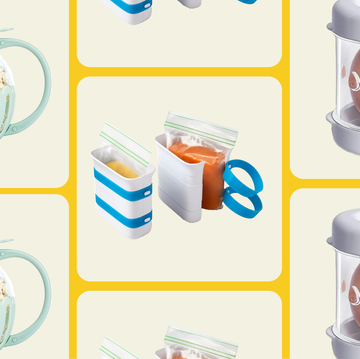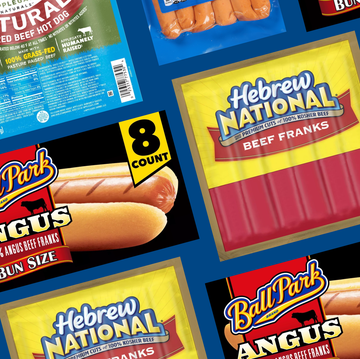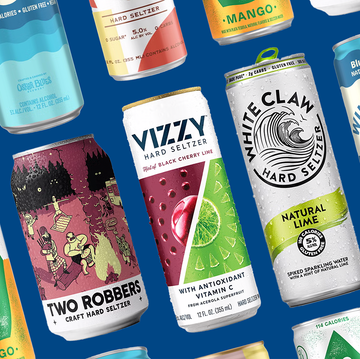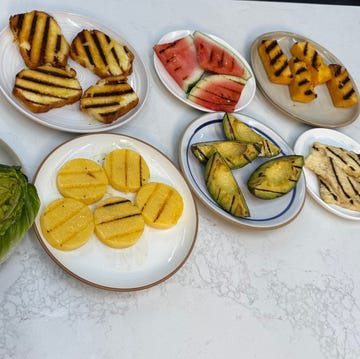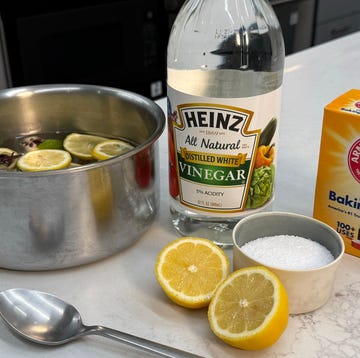We all know that the idea of "eating healthy" can be subjective. What's considered healthy depends on your individual health, dietary restrictions, lifestyle, and goals. But one truth is universal: there are many foods that, in general, are deemed "healthy," but the nutrition label might tell a different story.
Walk into any grocery store and you're likely to find products—many of which are package—labeled with various health claims. It can be tricky to navigate the grocery aisles and easy to be swayed by well-designed packaging.
"Many foods, in particular breakfast cereals, have marketing words such as 'contains whole grains' or 'heart healthy,' even though they’re an ultra-processed food," says dietitian nutritionist Angel Luk, RD.
What's a consumer to do? We asked Luk and Lauren Manaker, MS, RDN, also a dietitian nutritionist, for their advice. Below, they share the common "healthy" foods they often see in their practice, along with tips for those trying to avoid the traps.
"Healthy" Foods That Aren't Very Healthy
"There are quite a few foods that get marketed as healthy, but they aren’t always as beneficial as you’d think—especially if you eat them in large quantities," says Manaker.
Flavored Plant-Based Milks
As we reported earlier, not all plant-based milks are created equally. While some might have minimal ingredients, others can have added sugars, oils, and gums. "More often than not, added sugar is listed as one of the first two to three ingredients, even if it’s marketed as 'original,'" says Luk.
For those looking for alternatives to cow's milk, she recommends opting for unsweetened plant-based milks that are fortified with calcium and vitamin D.
Diet Soda
But it's free of sugar, right?
"After nearly seven years working in a metabolic and weight loss surgery clinic, I can appreciate how diet pop can be helpful as a 'transition beverage' to ease people off high calorie, sugary drinks. However, the ultimate goal is to completely wean off the diet soda eventually, too," says Luk.
She says that research has shown that zero-calorie sodas can actually trick the brain into craving calorie-dense sweet foods.
Granola & Cereals
This might be one of the most common offenders. "Granola is often labeled as a wholesome choice, but many brands are packed with added sugars and fats," says Manaker.
Plant-Based Meat Alternatives
There are a lot of plant-based meat alternatives on the market, but like non-dairy milk, not all are created equally.
"Some, not all, commercially available meat alternatives are actually quite high in saturated fat, salt, and sometimes sugar," says Luk. While she says these products are okay to consume occasionally, she recommends making your own plant-based burgers and freezing them. If you do buy premade versions, read those labels.
Pre-Made Smoothies
"While they seem healthy because they’re made from fruits or vegetables, they can end up being very high in sugar and calories," says Manaker.
We have plenty of smoothie recipes you can alter to fit your diet—all you need is a blender.
Crackers & Veggie Chips
Some packaged chips and crackers, especially with ingredients like veggies and whole grains, might not always be what they seem. "Whole-grain crackers or veggie chips, which sound like better alternatives to regular snacks, can contain mainly oils, salt, and just a touch of dehydrated veggie sprinkle," says Manaker.
Tips For Eating Healthy
While these foods are often not as healthy as they might seem, our dietitian nutritionists have a lot of advice for making shopping and eating healthy easy.
"My top tip is to focus on whole, minimally processed foods as much as possible," says Manaker. "Think fresh fruits, vegetables, whole grains, lean proteins, and healthy fats."
She also says to avoid trendy buzzwords that you might see on packaging, which don't always mean the food is nutritious. Some common phrases could include "all-natural," "organic," or "heart-healthy."
The next key is to look at the nutrition facts and ingredient labels. As ingredients are typically listed in descending order by how much is in the product, Manaker says that if you see sugar in one of the top five ingredients, it's probably "loaded with added sugar."
Lastly, try not to stress too much. "As much as the pursuit of eating healthy is a noble and worthwhile one, we must remember that a normal, healthy mindset around eating includes occasionally eating something simply because you want to, eating for joy, eating because it tastes good, and eating without labeling the food as 'good' or 'bad' before, during, or after we eat it," Luk adds.


